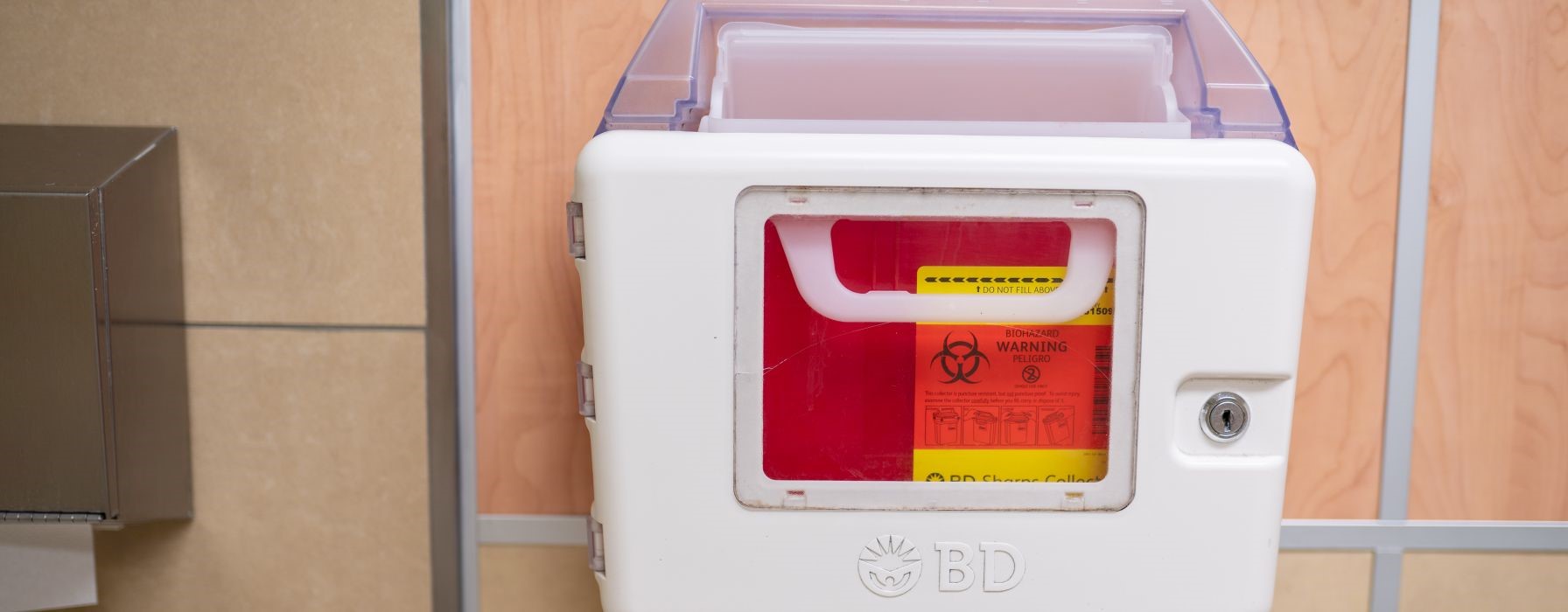Things to Know About Sharps Disposal
Proper sharps disposal is essential for public health and safety. “Sharps” include needles, syringes, lancets, and other medical instruments that can puncture or cut the skin. Whether used for managing diabetes, administering medications, or other medical needs, safely disposing of sharps helps prevent injuries and the spread of infections. Nucore Medical Waste Services provides sharps disposal in Houston, Cypress, Pasadena, TX, Webster, TX, Deer Park, TX and surrounding regions.
- Never Throw Sharps in the Trash or Recycling Bin
Used sharps should never be tossed into regular trash or recycling bins. Doing so puts sanitation workers, janitors, and others at risk of needlestick injuries and exposure to bloodborne pathogens.
- Use an FDA-Cleared Sharps Disposal Container
These containers are made of puncture-resistant plastic with a secure, tight-fitting lid. They are designed to safely hold used sharps and prevent leaks or accidental injuries.
- Alternatives if an Official Container Is Not Available
If you don’t have access to an FDA-cleared container, use a heavy-duty plastic household container like a laundry detergent bottle. Make sure it has a tight lid and is labeled clearly as “Do Not Recycle – Sharps Inside.”
- Follow Local Disposal Guidelines
Rules for sharps disposal vary by location. Some communities offer collection sites, mail-back programs, or drop-off services at hospitals or pharmacies. Check with your local health department or waste management services for specific instructions.
- Never Flush Sharps
Flushing sharps down the toilet or sink can cause plumbing issues and pollute water systems.
- Keep Sharps Out of Reach of Children and Pets
Store used sharps in a secure container away from children and animals until they can be properly disposed of.
By following safe sharps disposal practices, you’re protecting yourself, others, and the environment from potential harm.
Let’s have a conversation! Feel free to call or email us.

